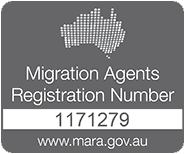Here’s some great news for international students currently studying, or considering studying, in Australian regional areas.
A ‘regional area’ of Australia is defined as anywhere expect major metropolitan areas. In practice, this means anyone required to live and work in regional Australia would need to avoid Sydney, Melbourne, Brisbane, the Gold Coast and Perth. Precise boundary points are determined via postcodes, and the Australian government is due to revise these later in 2019.
- A new Temporary Graduate visa is now available, giving holders of this visa temporary residency and post-study work rights;
- New skilled regional visas are becoming available from November 2019: Skilled Employer Sponsored Regional visa and Skilled Work Regional visa, providing a pathway to permanent residency!
The ‘Temporary Graduate’ Visa
This visa allows international students to live, work, or even study further in Australia, after their studies have come to an end. There are two ‘streams’ to this visa; the first (the ‘Graduate Work’ stream’) allows students who have studied outside Australia and graduated with qualifications and skills that are relevant to occupation shortages in Australia, to come and live in Australia for up to 18 months.
The second stream (‘Post-Study Work’ stream) is designed for international students who have graduated with a degree from an institution in Australia. It allows for students to remain in Australia, typically for between 2 and 4 years (depending on the qualification). The degree needs to come from a ‘CRICOS-registered‘ course.
For graduates from regional campuses of a registered university or institution, a second Temporary Graduate visa may be available. This would provide an extra twelve months of post-study work rights. Only existing Temporary Graduate visa holders who have maintained ongoing residence in a regional area will qualify – could that be you?
Complete our free eligibility assessment form to learn more about how any of these options might work for you.
New ‘Skilled Regional’ Visas
These visas, currently scheduled to be introduced in November 2019, could provide a pathway for international students to achieve permanent residency in Australia, by living and working in a region for at least 3 years (the first permanent version of this visa will therefore be available in November 2022).
The visas bring several opportunities. Firstly, many more occupations will be available for regional employers to sponsor skilled migrants compared to occupations in non-regional areas. Secondly, processing will be prioritised for applicants for these visa types. Finally, additional points will be made available for skilled regional visas, making it easier to meet the Points Test which will be applied.
Contact us via our visa assessment form and we’ll let you know if you could be eligible for a Skilled Regional visa.
Some questions and answers
“Can I change my current study to a university in a regional area?”
The short answer is – yes!
If you are holding a student visa and have been enrolled a course in Australia, there will be two scenarios for you to change to a different university/college.
1) If you’ve been studying the course for less than 6 months, you should ask for a release letter with the approval from your current school.
2) If you’ve been studying for more than 6 months (1 semester), you might be able to change without the release letter. You should get the letter of offer from the new school at first.
“What regional universities are recommended?”
The Regional University Network (RUN) is a network of six universities with head quarters in regional Australia and a shared commitment to playing a transformative role in their regions. The Network was established in October 2011. The foundation members are Central Queensland University, Southern Cross University, Federation University Australia, University of New England, University of Southern Queensland and University of the Sunshine Coast.
Here’s a brief look at each of these regional universities:
– Regional Queensland
- Opening regional campuses in Gladstone, Emerald, Mackay, Rockhampton, Adelaide, Bundaberg, Cairns, Noosa and Townsville.
- Is recognised within the top 600 universities in the world by the prestigious Times Higher Education World Rankings.
- Is among the world’s “best young universities” according to QS Word University Rankings.
- Opening regional campuses in Toowoomba, Springfield and Ipswich.
- Is #1 in Queensland for graduate employability.
- Is noted for strengths in courses relating to Education and Training and Mechanical Engineering.
- Opening regional campuses in Sunshine Coast, Fraser Coast, Gympie and Caboolture.
- Is one of Australia’s highest-rated public universities for teaching quality, overall student experience, leaning resources, student support, skills development and social equity.
- 87% of USC graduates are employed with four months.
- 2,732 international students are registered from 72 countries.
– Regional Victoria
- Federation University Australia (FedUni)
- Opening regional campuses in Ballarat, Berwick, Gippsland and the Wimmera.
- Is noted for the strengths in courses relating to Sport Science (among the world’s best, with a Shanghai Rankings in the 101-150 bracket for 2017) and hospitality, leisure, sport and tourism
– Regional New South Wales
- Opening regional campus in Armidale.
- Is noted for the strengths in course relating to Agriculture & Forestry, Education and Training, Linguistics, Medicine, Social Sciences and Management.
- Opening regional campuses in Lismore and Coffs Harbour.
- Is famous of the course in Hospitality & Leisure Management (#38 in 2018 QS WUR by Subject Rankings).
In addition to the above universities, regional TAFE (Technical and Further Education) colleges offering affordable prices and a flexible timetable, are becoming popular among international students.
Are you interested to know the costs of studying in Australia and how to apply for a student visa?
Complete our free student visa eligibility assessment and we can advise on all your visa options!





